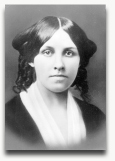Mentoring: Telling it like it is
Ah yes, mentors. Those people who pick you up when you’re down, who point out the error of your ways in such kind tones that you actually hear what they are saying, who can always find a perfect metaphor or a tiny piece of scintillating dialog buried in your drafty mess of mismatched words. Well, sometimes. Sort of.
Well, sometimes. Sort of.
I would have to say that the most valuable mentoring I’ve ever received has been of the “Danger! Do Not Enter!” variety from battle-scarred professionals of the publishing world. These experienced warriors had no compunctions about ripping the rose-colored glasses right off my face and grinding them to dust in front of my naked eyes. There have been three of them; their influence on me will never go away. One is a best-selling author, one an agent and one a publisher.
When I was in nursing school in the 1970s, I was a single mom with a three year old daughter—more than enough to keep me occupied. But for some reason which I can’t for the life of me remember, I wrote a short story. I can’t even remember what it was about, possibly something about a feisty woman against the world. I must have thought it was incredibly brilliant because I sent it to an author whom I much admired. I was sure she would read it and realize that I was her long lost comrade-in-arms and we would become best friends forever. I’m not sure I was even thinking about publication; it was connection I was looking for.
Amazingly enough, the successful author wrote back to me. The gist was clear: “Authors are very busy people and we don’t have time for this sort of thing. Don’t ever send anything like this to an author again.”
Such was my first glimpse into the real life of a published author. Good to know.
Many years later, after decades of fulltime work, a husband and another daughter, I wrote a book. First it was an idea, then it was an excuse to read a lot of other books, then a lot of writing and rewriting and then, lo and behold, I had a manuscript. What to do next? Find an agent. Or first, find a book that lists agents’ names, addresses and specialties, leaf through it and pick a couple dozen to query. This experience gives the writer the chance to survive (or not) two rounds of rejection—one set from agents, and a second one from publishers.
After many rejections, I finally got a yes, from a venerable east coast agent. Agent Al, as I always think of him, was in his early 70s, and his experience in the book business went back to the golden age of the 1920s and 30s, both in New York and in London. I swooned with delight at his reminiscences and treasured this tenuous link to the storied days of yore. Agent Al didn’t use email, and hated the phone, so all my correspondence with him was via typewritten U.S. mail letters and the occasional fax. He wrote to me early in our relationship:
You speak of phone calls and I must confess that I am allergic to them. Of all methods of communication I dislike phones the most. If speed is of the essence, the fax machine is, i n my opinion, the rare technological success, combining as it does immediacy with the opportunity to think a bit before committing. Also, there’s then a written record of what was said. Phone messages, on the other hand, quickly become indecipherable or otherwise obsolete. As for email, we intend to let that remain a vague rumor so far as we’re concerned.
I hung on Agent Al’s every word. The more he told me about the publishing world, the weirder it sounded. Not like hospitals, where I’d been for gainfully employed for decades. I was appalled to learn that authors generally were paid only twice a year, and that each payment would be for the six-month period not from the immediately past six months, but the six months prior to that. How could any normal working person live with two pay checks a year? Finding out it was due to all the delays and returns in the system that bookstores used to pay publishers for their inventory only added to my sense that the industry was nuts.
Eventually we sold the book which became Miss Alcott’s Email to a Boston publisher who wrote (typewritten again) to me:
Dear Ms. Bakke,
This is just a note to say that I very much enjoyed reading your novel (if that’s what we are going to have to call it) and I’ll be speaking to [Agent Al] soon about an offer. It won’t make you rich, so don’t plan to call the contractor to expand the kitchen, but we’ll do what we can. It’s a wonderful book; I learned a lot. Here’s our latest catalogue so you can see who we are and what we do.
Once in the maelstrom of publication, I was stripped of even more illusions about the straightforwardness of this business. The publication was delayed a couple of years, for reasons that never quite made sense to me, but apparently had to do with the fact that books are like lines of clothing—fashions that come out in the spring and the fall, with publishers fiddling release dates to create the perfect seasonal catalogue.
Agent Al’s final words were that I needed to continually remind myself that “Once your book is out there, you have no control at all. People will either take to it or they won’t. It’s not yours anymore.”
The best mentors ever.
The post Mentoring: Telling it like it is appeared first on Kit Bakke, author of Dancing on the Edge and Miss Alcott's E-mail.



